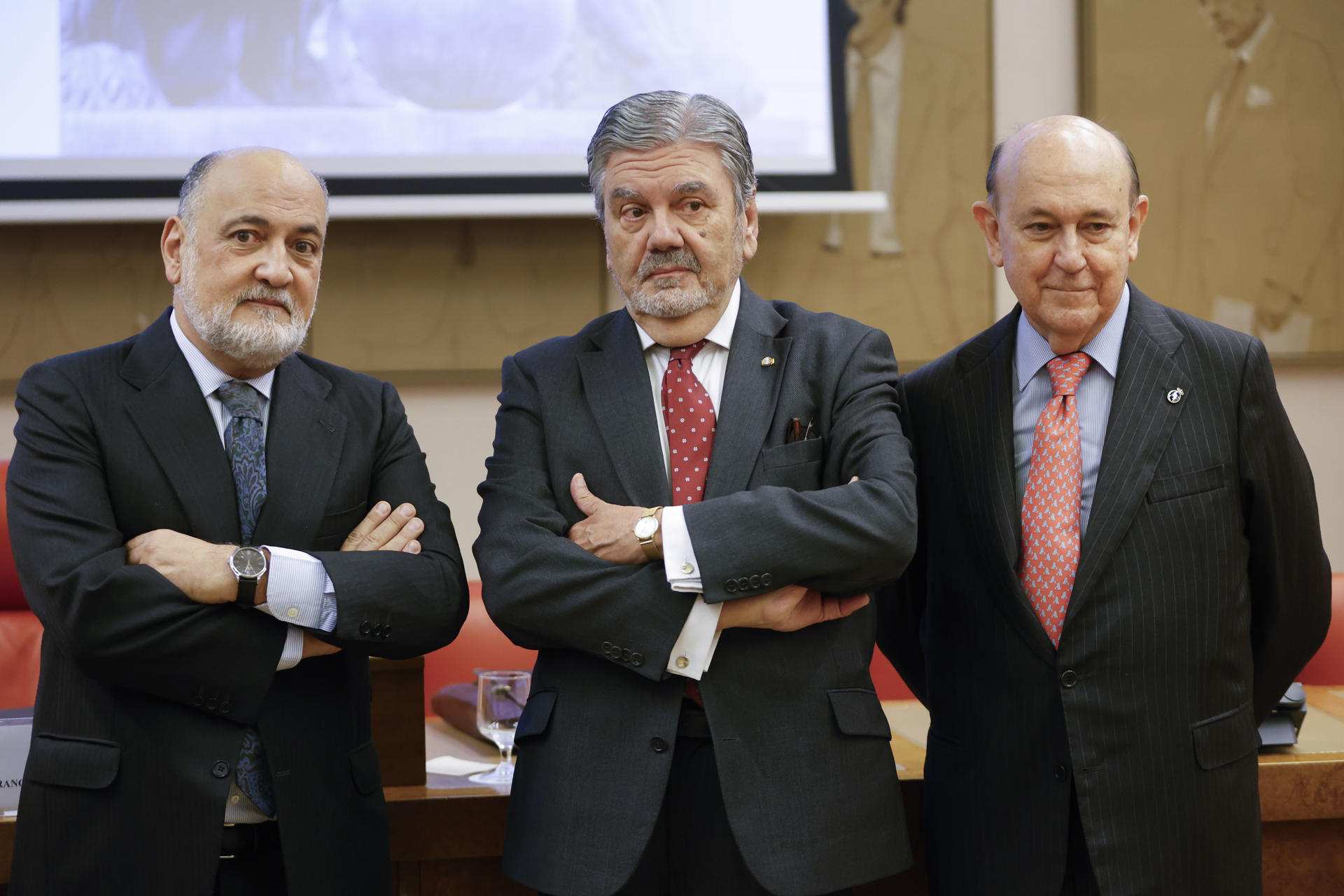"We must defend the right to resistance with all the means at our disposal: demonstrations, boycotts or non-compliance with laws when others do not comply with them". These are the words used by former judge of the Spanish Constitutional Court, Jorge Rodríguez Zapata, this Thursday, during a parliamentary session held by the People's Party (PP) against the Catalan amnesty held at the Congress of Deputies. Also invited to the PP event was former Constitutional Court president Francisco Pérez de los Cobos, who made a call to "battle" against a law that represents a "challenge to the constitutional order". It is, in his opinion, a law that violates the principle of legal certainty and equality, one of the arguments that Alberto Núñez Feijóo's party has been repeating in all forums since the Socialists (PSOE) confirmed its accord pact with the pro-independence parties for a law that intends to redress the judicial persecution of a political movement.
Francisco Pérez de los Cobos: "The political accords in which [the Amnesty Law] is framed are a full-on challenge to the constitutional order."
The former head of the Constitutional Court, who is also the brother of Civil Guard lieutenant-colonel Diego Pérez de los Cobos who coordinated the police operation against the 1st October referendum, indicated that he has maintained his silence till now. "But today I have decided to do so no longer because as a citizen I have the obligation to speak about a situation that I consider extremely worrying and that also challenges me in relation to the exercise of the functions of interpretation and defence of the Constitution that I have exercised", said the man who presided over Spain's court of guarantees between 2013 and 2017. Likewise, his former colleague Zapata asserted that the amnesty law meant "the end of the Constitution".
The grounds on which Zapata asserted the unconstitutionality of this proposed law are that Spain's 'law of laws' prohibits general pardons. "If formally an amnesty is incompatible with the Constitution, there is no need to go into the text, since the text is formally and absolutely unconstitutional," he said. However, it is appropriate to mention that the Constitution prohibits the Spanish government from approving general pardons, but the amnesty would be approved by the houses of parliament, not by the executive. Andrés Ollero, the third judge emeritus who participated in the event, criticized that the amnesty law is intended to "extend a welcome to a fugitive".
De los Cobos gave the view that the law presented by the PSOE in the Congress of Deputies after it had negotiated support for Pedro Sánchez's investiture debate with the Catalan parties ERC and Junts "constitutes a challenge" to the Spanish Constitution. It was no surprise that he criticized the Socialists for making a pact to enable it to return to the Spanish government with the party of the Catalan president-in-exile, Carles Puigdemont. Thus, he asked for a "rigorous" appeal to be presented to the Constitutional Court, affirming that all three speakers at the session are aware of the importance of presenting a "good appeal" before the court of guarantees.
Jorge Rodríguez Zapata: "We have a right to resist against the clear and flagrant violation of our democracy"
Thus, De los Cobos criticized the Spanish government for accepting the the independence movement's "obscene" story about the judicialization of the political conflict between Catalonia and Spain. "It was not an anomaly, but the opposite, a demonstration that our rule of law works", he argued.
Francisco Pérez de los Cobos criticizes "the obscene assumption by the government party of the separatist narrative and the framework of the negotiation platform that the separatists have been demanding."

